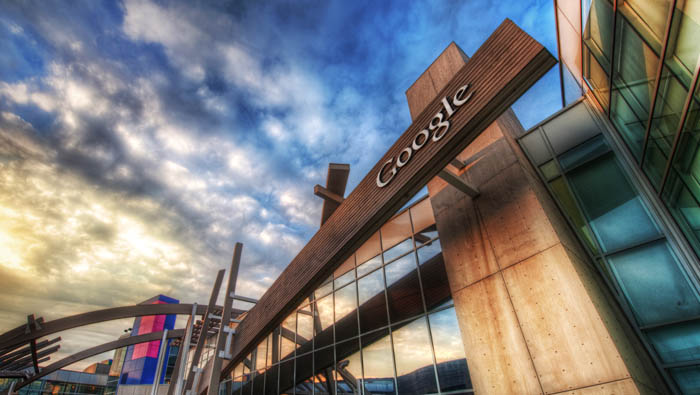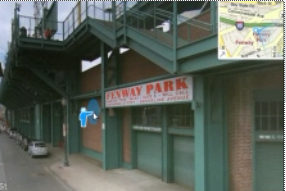Timeline: Google Street View scandal
We look back at the Google Street View scandal's history, right up to the ICO investigation's conclusion.


The ICO decided the data Google took in the UK did not amount to anything significant, and so concluded its investigation without any action. Of course, the commissioner would start up another case later in the year.
Earlier in the month, Google had confirmed its Street View cars would be heading back out on the road.
Attorney General for the State of Connecticut Richard Blumenthal returned to threaten Google with legal action if "complete, comprehensive answers" were not given.
August 2010
Google's Seoul office was raided by South Korean police as they continued their investigation around data collection by Street View cars.
October 2010
Google came out and admitted that among the data collected during the Street View operation were passwords, emails and URLs. Subsequently, the ICO reopened its investigation and said it would consider using its "enforcement powers."
Get the ITPro daily newsletter
Sign up today and you will receive a free copy of our Future Focus 2025 report - the leading guidance on AI, cybersecurity and other IT challenges as per 700+ senior executives
The Federal Trade Commission decided to drop its own investigation into the search giant, which is let off the hook once again. Federal regulators agreed Google had done enough in addressing privacy concerns. Google still faces cases from more than 30 US state prosecutors.
At a parliamentary debate, minister for culture Ed Vaizey confirmed the ICO would not be able to issue a fine against Google and the search giant had escaped an investigation from the Metropolitan Police.
November 2010
The ICO said it will not be pressured into making a snap decision over Google, stressing it "must take a calm and measured approach." The watchdog also noted it needed to "remain evidence based."
The body came out two days later to say Google would not be fined, but instead would have its data protection practices audited by the ICO and sign an undertaking to ensure data protection breaches do not happen again.
Privacy groups were not impressed. Open Rights Group's Jim Killock said the ICO was "behaving like a lapdog, not a watchdog."
Tom Brewster is currently an associate editor at Forbes and an award-winning journalist who covers cyber security, surveillance, and privacy. Starting his career at ITPro as a staff writer and working up to a senior staff writer role, Tom has been covering the tech industry for more than ten years and is considered one of the leading journalists in his specialism.
He is a proud alum of the University of Sheffield where he secured an undergraduate degree in English Literature before undertaking a certification from General Assembly in web development.
-
 Cleo attack victim list grows as Hertz confirms customer data stolen
Cleo attack victim list grows as Hertz confirms customer data stolenNews Hertz has confirmed it suffered a data breach as a result of the Cleo zero-day vulnerability in late 2024, with the car rental giant warning that customer data was stolen.
By Ross Kelly
-
 Lateral moves in tech: Why leaders should support employee mobility
Lateral moves in tech: Why leaders should support employee mobilityIn-depth Encouraging staff to switch roles can have long-term benefits for skills in the tech sector
By Keri Allan
-
 Google blames search “monopoly” on bug
Google blames search “monopoly” on bugNews Glitch was responsible for Yelp and TripAdvisor getting buried in search results, claims search engine giant
By Rene Millman
-
 Google's $1.1 bn purchase of Waze to be probed by FTC
Google's $1.1 bn purchase of Waze to be probed by FTCNews Investigation will determine whether Google simply purchased start-up to prevent rivals from acquiring it.
By Khidr Suleman
-
 FTC hits social network Path with record $800k fine
FTC hits social network Path with record $800k fineNews $800,000 penalty for data theft and underage sign-ups is highest ever given to app developer.
By Jane McCallion
-
 Google uncloaks refreshed search
Google uncloaks refreshed searchNews The internet giant starts rolling out its fresh search look to mark the start of 2012.
By Tom Brewster
-
 Yahoo ‘should abandon’ email scanning feature
Yahoo ‘should abandon’ email scanning featureNews A major UK privacy group calls on Yahoo to drop a recently introduced email scanning feature.
By Tom Brewster
-
 Microsoft hopes to avoid Google Street View nightmare
Microsoft hopes to avoid Google Street View nightmareNews The Redmond giant doesn't want to 'do a Google' as it collects data for location-based services.
By Tom Brewster
-
 Has the cookie crumbled?
Has the cookie crumbled?In-depth A new directive comes into force from the EU meaning significant changes in the way websites work with cookies. Simon Brew tries to make sense of it all...
By Simon Brew
-
 ICO fines 'coming this month'
ICO fines 'coming this month'News The ICO will flex its muscles this month by handing out a fine, commissioner Graham says.
By Tom Brewster